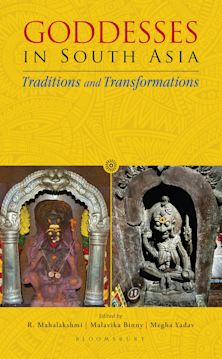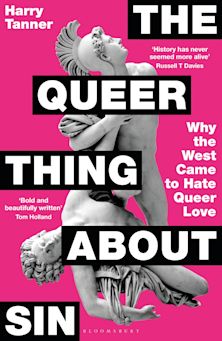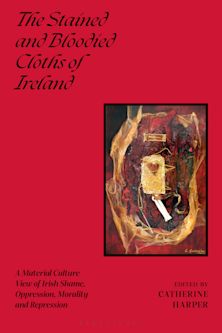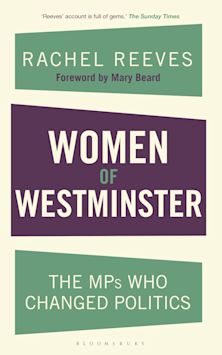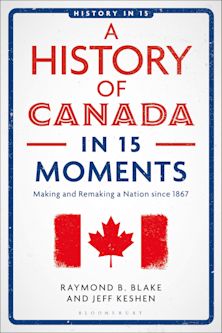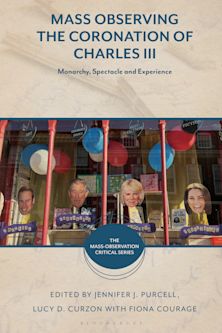- Home
- ACADEMIC
- History
- Social History
- Building Blocks of Society
Building Blocks of Society
History, Information Ecosystems and Infrastructures
Building Blocks of Society
History, Information Ecosystems and Infrastructures
This product is usually dispatched within 2-4 weeks
- Delivery and returns info
-
Flat rate of $10.00 for shipping anywhere in Australia
You must sign in to add this item to your wishlist. Please sign in or create an account
Description
The history of information is a rapidly emerging new subfield of history. Historians are identifying the issues they need to examine, crafting novel research agendas, and locating research materials relevant to their work. Like the larger world around them, historians are discovering what it means to live and work in a world that increasingly sees itself as an information society. Long a discussion point among sociologists, economists, political leaders, and media experts, historians are integrating their methods and research into the larger conversation.
This book proposes a way to look at the history of information and to history as a whole that is simultaneously relevant to observers in other disciplines and familiar to historians of business, economics, sociology and technology. The author presents that advocacy in two ways: with theoretical and historiographical discussions of what information ecosystems and infrastructures are and their value for this kind of research, second, through a range of case studies applying those concepts. The wide range of case studies is purposeful in demonstrating the applicability of the ideas presented in the early methodological chapters. Themes mentioned in each of the early chapters are consistently applied in all subsequent chapters.
This book breaks from the more traditional historiography of book history, sociological and philosophical discussions about knowledge and society. The first two chapters focus on the craft of the historian in this new field, better known as historiography and methods. Subsequent chapters are case studies, showing what results when a historian writes about ecosystems and infrastructures, moving our discussion from theory to practice. The book is an important and substantive contribution to this new subfield, an essential primer, as well as a major statement for all historians on how next to evolve their craft.
Product details
| Published | 25 Nov 2020 |
|---|---|
| Format | Hardback |
| Edition | 1st |
| Extent | 332 |
| ISBN | 9781538148549 |
| Imprint | Rowman & Littlefield |
| Illustrations | 14 b/w illustrations; 19 tables; 13 charts; |
| Dimensions | 237 x 162 mm |
| Publisher | Bloomsbury Publishing |
About the contributors
Reviews
-
This book is a useful introduction to information ecosystems and infrastructures, informed by the work of JoAnne Yates, Paul Edwards, Susan Leigh Star, Geoffrey Bowker, and others in business history and the history and sociology of technology. Cortada universalizes his proposed method of understanding information ecosystems as a historical approach by presenting case studies in computing, diplomacy, rural life, and genealogy, and by identifying six questions for historians to ask. These include considering the "vessels ... used to collect and store information in many different societies and times"; the types of information "collected, used, and shared" by and about people; "the patterns of adoption and use of information over time"; how "the use of information [has affected] the work and lives of specific individuals and ... groups"; "what other historical discourses should be viewed as information history"; and "the intrinsic features of facts themselves and how [they] affect the creation and use of other facts" (pp. 9–13). The book’s strengths are its focus on users and the author’s considerable expertise in business and computing history. Recommended.
Choice Reviews
-
Information history is an emerging academic discipline. It is a field that applies not only to understanding what has been called “the Information Age” but also provides a new lens to understand traditional historical topics such as technological, political, and cultural history across many centuries. In earlier writings, Cortada introduced the concept of information ecosystem as a way to understand the information content in people’s work and everyday lives. This book provides his first full-scale attempt to demonstrate the versatility and value of this concept, not only to information history but also to many other areas of history.
Using seven wide-ranging case studies (from salespersons within a single company, to competition of firms within an industry, to communities of farmwives), Cortada demonstrates the value of information ecosystems to general historical understanding. This is an important book not only for helping to solidify the nascent field of information history but also to test its value in more general historical study.William Aspray, Emeritus Editor, Information & Culture; Senior Research Fellow, Charles Babbage Institute
-
Cortada expertly explores how to study the sprawling topic of information, a book certain to be valuable to historians, social scientists, scientists, and managers alike. His fascinating cases—from 1950s homemakers and international diplomats to genealogists and IBM sales managers—yield countless insights and deftly advance his thesis of infrastructures and ecosystems at the heart of it all.
Jeffrey R. Yost, author of Making IT Work: A History of the Computer Services Industry
-
Cortada’s work provides a much-needed introduction to the historical analysis of information.
Journal of Interdisciplinary History

ONLINE RESOURCES
Bloomsbury Collections
This book is available on Bloomsbury Collections where your library has access.


















